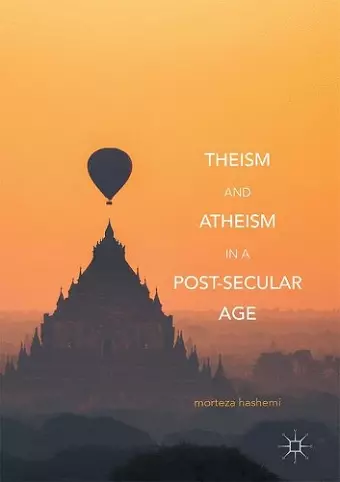Theism and Atheism in a Post-Secular Age
Format:Hardback
Publisher:Springer International Publishing AG
Published:18th Jul '17
Should be back in stock very soon
This hardback is available in another edition too:
- Paperback£89.99(9783319855288)

"The idea that science and religion have been in perennial conflict is a relatively recent myth that has fuelled arrogance and incomprehension on both sides of the divide. This much has been known to historians and philosophers of science and religion for decades. Morteza Hashemi deftly deploys this knowledge to demonstrate why a pragmatic reconciliation of the two sides should be centre stage in future discussions of social theory, sociology and, indeed, the everyday conduct of social life. In the process, Hashemi provides a long overdue proper contextualisation of atheism as a social phenomenon." (Steve Fuller, Auguste Comte Professor of Social Epistemology, University of Warwick, UK) "In this original book, Dr Morteza Hashemi challenges one of the core presuppositions of modern social and political thought; namely, the self-positing nature of its critique of religion. By looking at a variety of sociological, philosophical and historical sources, he uncovers the most dramatic of modern inversions: the 'Promethean' view that 'man' is to replace 'god' as the ultimate source of human morality. At a time of reductive academic specialisation and oppositional ways of thinking, this book is an invitation to reflect on the continuities and discontinuities between secular and religious worldviews." (Daniel Chernilo, Professor of Social and Political Thought, Loughborough University, UK, and University Diego Portales, Chile)
Hashemi argues that public intellectuals must consider that it is a sign of a post-secular age in which believers and non-believers go beyond mere tolerance and engage in a creative process of co-practice and co-working.
This book examines the post-secular idea of ‘religion for non-believers’. The new form of unbelief which is dubbed as ‘tourist atheism’ is not based on absolute rejection of religion as a ‘dangerous illusion’ or ‘mere prejudice’. Tourist atheists instead consider religion as a cultural heritage and a way of seeking perfection. What are the origins of these new forms of atheism? What are the implications of the emergence of a type of atheism which is more open toward religious teachings, rituals, arts, and world views? Hashemi argues that public intellectuals must consider that it is a sign of a post-secular age in which believers and non-believers go beyond mere tolerance and engage in a creative process of co-practice and co-working.
ISBN: 9783319549477
Dimensions: unknown
Weight: unknown
250 pages
1st ed. 2017